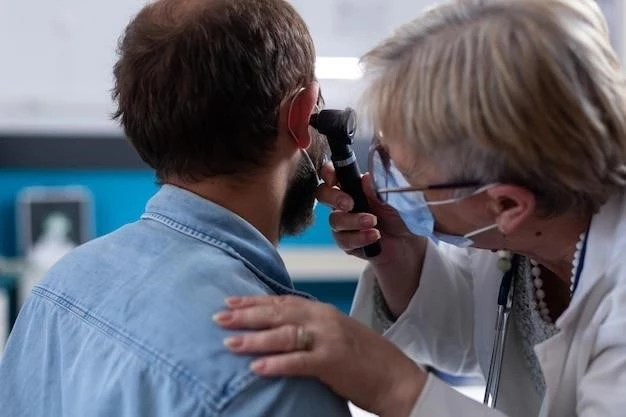It’s crucial to be aware of the causes, symptoms, treatment options, complications, and management strategies of Caroli Disease.
What is Caroli Disease?
Caroli disease is a rare genetic disorder characterized by abnormal dilatation of intrahepatic bile ducts. It can lead to recurrent bacterial cholangitis and liver abscesses. Individuals with Caroli disease may experience abdominal pain, jaundice, and fever. It’s essential to consult with a healthcare provider for proper diagnosis and management. Understanding this condition is crucial for effectively navigating treatment options and maintaining overall well-being.
Types of Caroli Disease
Caroli disease is classified into two main types⁚ Caroli syndrome and Caroli malformation. Caroli syndrome is associated with congenital hepatic fibrosis, while Caroli malformation is isolated and typically presents in adulthood. Both types can have similar symptoms, including abdominal pain and recurrent cholangitis. Proper diagnosis by a medical professional is essential to determine the specific type and develop an appropriate treatment plan. Understanding the distinction between the two types is crucial for managing the condition effectively.
Causes of Caroli Disease
The exact cause of Caroli disease is genetic, with mutations in certain genes leading to the abnormal dilation of bile ducts within the liver. In Caroli syndrome, it is often associated with congenital hepatic fibrosis, while in Caroli malformation, it occurs in isolation. These genetic mutations disrupt the normal flow of bile, leading to bile duct abnormalities and potentially causing complications such as recurrent cholangitis. Understanding the genetic basis of Caroli disease is crucial for both diagnosis and the development of targeted treatment strategies. Consult a healthcare provider for further evaluation and guidance.
Symptoms and Diagnosis of Caroli Disease
Recognizing symptoms like abdominal pain and jaundice is critical. Prompt diagnosis by a healthcare professional is essential for appropriate management. Regular check-ups are advised.
Common Symptoms of Caroli Disease
Common symptoms of Caroli disease include abdominal pain, jaundice, recurrent fever, enlarged liver, and recurrent bacterial cholangitis. If you experience these symptoms, it is essential to seek medical attention promptly for a proper diagnosis and management plan. Early detection and treatment can help in controlling the progression of the disease and improving overall quality of life. Keep track of your symptoms and discuss them with your healthcare provider for comprehensive care.
Diagnostic Procedures for Caroli Disease
Diagnosing Caroli disease may involve imaging tests such as ultrasound, CT scans, MRCP, or liver biopsy. Blood tests to check liver function and genetic testing may also be necessary. These diagnostic procedures help healthcare providers determine the extent of bile duct abnormalities and plan an appropriate treatment strategy. It is important to follow the recommended diagnostic process and consult with specialists to ensure an accurate diagnosis and personalized care plan tailored to your specific condition.

Treatment Options for Caroli Disease
Treatment for Caroli disease focuses on managing symptoms and complications. Interventions may include antibiotics for infections, medications for symptom relief, endoscopic procedures to address bile duct issues, and in severe cases, liver transplantation. It is crucial to work closely with a healthcare team to develop a comprehensive treatment plan tailored to your individual needs. Regular follow-ups and monitoring are essential to track progress and optimize your health outcomes.
Caroli Disease Complications
Caroli disease can lead to various complications, including recurrent cholangitis, liver abscesses, biliary stones, and even liver failure. These complications can significantly impact your quality of life and overall health. It is crucial to stay informed about potential risks and work closely with healthcare providers to monitor and manage complications effectively. Early detection and proactive management strategies are key to minimizing the impact of Caroli disease complications and maintaining optimal well-being.
Management of Caroli Disease
Effective management of Caroli disease involves a multidisciplinary approach. This may include symptom management, regular monitoring for complications, lifestyle modifications, and potentially surgical interventions. It is essential to collaborate closely with specialists such as hepatologists and gastroenterologists to create a personalized management plan. By adhering to treatment recommendations, attending regular check-ups, and making healthy lifestyle choices, individuals with Caroli disease can better manage their condition and improve their quality of life.
Caroli Disease Research and Developments
Ongoing research on Caroli disease aims to enhance understanding, improve diagnostic tools, and develop innovative treatments. Clinical trials and genetic studies are expanding knowledge of this rare condition. Staying informed about current research findings and advancements can provide valuable insights for individuals with Caroli disease and their healthcare providers. Being proactive in exploring emerging treatments and participating in research efforts can contribute to the progress in managing Caroli disease and potentially lead to improved outcomes.
Living with Caroli Disease
Living with Caroli disease involves adapting to a chronic condition that may impact daily life. It is crucial to prioritize self-care, maintain regular follow-ups with healthcare providers, manage symptoms effectively, and seek support from loved ones. Understanding your condition, following treatment plans, and making lifestyle adjustments can help you navigate the challenges of Caroli disease. Focus on overall well-being, engage in activities that bring you joy, and stay informed about resources available for individuals living with chronic illnesses.
Diet and Nutrition for Caroli Disease
Managing a healthy diet and proper nutrition is essential for individuals with Caroli disease. Focus on a well-balanced diet rich in fruits, vegetables, whole grains, lean proteins, and adequate hydration. Limiting salt, sugar, and saturated fats can help support liver health. Work with a healthcare provider or dietitian to develop a personalized nutrition plan tailored to your specific needs. Consider incorporating small, frequent meals and mindful eating habits to aid digestion and optimize nutrient absorption. Prioritize your overall wellness through mindful food choices and a healthy lifestyle.
